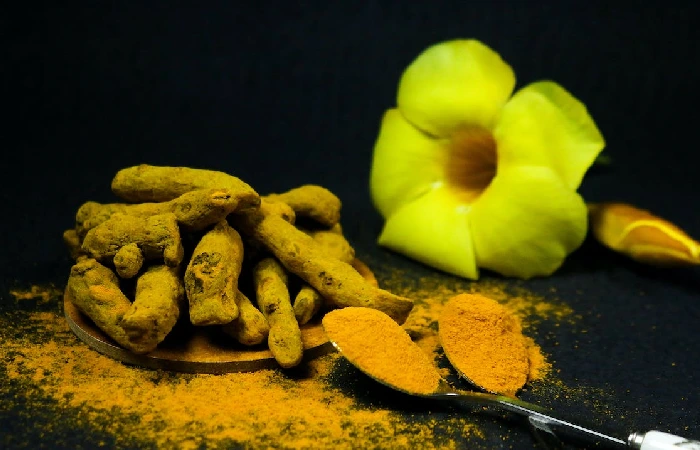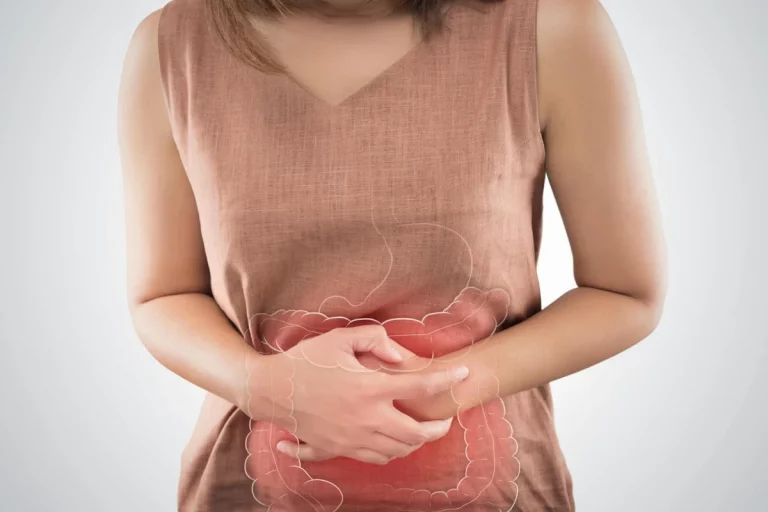Did you know that your digestive system is responsible for more than just digesting food? In fact, it’s essential for your overall health and well-being!
Unfortunately, many people don’t realize this until they experience stomach problems or indigestion.
Let’s discuss some common digestive problems, what causes them, and how to improve your digestive health with diet, lifestyle, and supplements.
Common Digestive Disorders and Stomach Problems
There are a variety of common digestive disorders and stomach problems that can disrupt your daily life. While some may be mild and only cause temporary discomfort, others can be more severe and cause chronic symptoms. They range from mild stomach cramps to severe gas pains, and everything in between.
Some common digestive disorders include:
Irritable Bowel Syndrome (IBS)
IBS is a common disorder that affects the large intestine and is characterized by abdominal cramps, diarrhea or constipation, bloating, and gas. The exact cause of IBS is unknown, but it is thought to be related to a combination of psychological and physical factors.
Common triggers include:
- Stress
- Anxiety
- Hormonal changes
- Certain foods (e.g., gluten, soy, eggs, nuts, dairy products, or processed foods)
- Medications (e.g., antibiotics and antispasmodics)
Gastroesophageal Reflux Disease (GERD)
GERD is a chronic condition that occurs when stomach acid flows back up into the esophagus. It is often caused by a malfunctioning of the lower esophageal sphincter (LES), which is a ring of muscle that separates the stomach from the esophagus.
When the LES is weak or relaxed, it can allow stomach acid to flow back up into the esophagus, leading to hot burps or discomfort. Acid reflux is a common cause of GERD, but it can also be caused by other factors like:
- Obesity
- Pregnancy
- Hiatal hernia
- Certain medications (e.g., aspirin, ibuprofen, and non-steroidal anti-inflammatory drugs (NSAIDs))
Stomach Ulcers
Ulcers are open sores that form on the lining of the stomach or small intestine. These cause uncomfortable bloating, blood in your stool, nausea, and other symptoms of general digestive discomfort.
While there are several possible causes of ulcers, one of the most common is an infection by the Helicobacter pylori (H. pylori) bacteria. Stress and smoking are also thought to contribute to the development of ulcers.
In some cases, ulcers may be caused by a condition known as stress gastritis. This occurs when the stomach is unable to properly process the increased amount of acid that is produced during periods of stress.
Inflammatory Bowel Disease (IBD)
IBD is a condition that results in inflammation of the digestive tract. Someone with IBD often has excessive bouts of diarrhea, blood in their stools, fatigue, and a decreased appetite.
The two most common types of IBD are ulcerative colitis and Crohn’s disease. Ulcerative colitis affects the large intestine, while Crohn’s disease can affect any part of the digestive tract.
While the exact cause of IBD is unknown, there are several theories about what may contribute to its development.
One theory suggests that IBD is an autoimmune disorder, meaning that the body’s immune system mistakenly attacks healthy tissue. Another theory posits that IBD is caused by a bacteria or virus. A third possibility is that IBD is hereditary.
Whatever the cause, IBD can be a very debilitating condition, causing abdominal pain, cramping, diarrhea, and weight loss.
Gastrointestinal Cancers
Gastrointestinal cancers are those that form in the digestive tract. There are several hundred types of GI cancer, but the four most common are:
- Gastric cancer
- Colorectal cancer
- Pancreatic cancer
- Hepatocellular carcinoma (liver cancer)
While there are many potential causes of GI cancers, some of the most common include:
- Smoking
- Heavy alcohol use
- Chronic inflammation of the GI tract
- Certain infections (e.g., Helicobacter pylori or hepatitis B and C)
- Family history of GI cancers
- Certain genetic syndromes (e.g., Lynch syndrome or familial adenomatous polyposis)
Chronic Diarrhea
Diarrhea is defined as having three or more loose or watery stools per day. While it can be unpleasant, diarrhea is usually not serious and will resolve itself within a few days.
However, some people experience chronic diarrhea, which is defined as diarrhea that lasts for more than four weeks. Chronic diarrhea can be caused by a variety of factors, including:
- Viral infections
- Change in diet
- Food allergies
- Food poisoning
- Certain medications (e.g., antibiotics, antacids, and laxatives)
Chronic Constipation
Chronic constipation is defined as having three or fewer bowel movements per week. It is a condition that affects the large intestine, or colon.
When the colon does not function properly, wastes can build up and become hardened, making bowel movements difficult or impossible. Constipation leads to extreme abdominal discomfort and hard stools that are painful to pass.
Common causes of chronic constipation include:
- The diet that is low in fiber
- Lack of exercise
- Medications (e.g., antacids, calcium channel blockers, antipsychotics, iron supplements, and certain antidepressants)
Gastroenteritis
Gastroenteritis, also called stomach flu, is inflammation of the stomach and intestines that can be caused by a number of different factors. Most commonly, it is caused by a virus, such as the norovirus. Other common causes of gastroenteritis include bacteria, such as E. coli or Salmonella, and parasites, such as Giardia.
In some cases, gastroenteritis may also be caused by food poisoning or an allergic reaction to food.
How to Improve Digestive Health
No one wants to live with stomach pains, abdominal cramps, chronic constipation, or symptoms of diarrhea. Here are a few simple things that can help you achieve a healthy digestive system.
A Balanced Diet
Helping your body properly digest food is essential for good health, yet many people suffer from digestive problems that limit their ability to extract nutrients from their food. Fortunately, there are a number of things you can do to improve your gut health through diet.
First, eat plenty of fiber-rich foods such as fruits and vegetables. A high-fiber diet keeps the digestive system functioning properly by providing bulk and keeping things moving.
Second, drink plenty of fluids. Water is essential for all bodily functions, including digestion. Like fiber, this keeps things loose and flowing throughout your gastrointestinal tract.
Third, avoid trigger foods that can aggravate digestive problems. Although there are different for everyone, common triggers include:
- Spicy foods
- Fatty and fried foods (e.g., fries, burgers, and chips)
- Acidic foods (e.g, citrus fruits and tomato sauce)
- Processed foods (e.g, artificial sweeteners and cheese)
- Caffeine
- Alcohol
A Healthy Lifestyle
Many people experience stomach problems at some point in their lives, and while some issues may be related to underlying health conditions, others may be the result of poor lifestyle choices.
Making simple changes to your daily routine, such as getting enough sleep or avoiding smoking, are important for optimal digestive health.
Additionally, don’t forget to exercise regularly. Staying physically active is key to keeping everything moving properly. Exercise stimulates the muscles in your digestive system to make things flow smoothly.
Finally, manage healthy stress levels. Stress can have a negative impact on digestion — and your holistic health as well. Fortunately, there are a number of effective stress management techniques you can try, such as yoga or meditation.
With Digestion Supplements
Regardless of our diet or lifestyle, sometimes our digestive system needs a little help. Digestive supplements can provide the nutrients our guts need to function properly.
- Digestive enzymes. They can provide enzymes that help us break down food. Enzymes are proteins that accelerate chemical reactions in our body, and they are essential for proper digestion. If we don’t have enough enzymes, we may not be able to properly digest our food, which can lead to indigestion, gas, and bloating.
- Digestive supplements can also provide probiotics, which are live bacteria that promote healthy gut flora (a balance of good and bad probiotic bacteria). Probiotics can help with conditions like irritable bowel syndrome and inflammatory bowel disease. They may also help prevent infections and reduce inflammation.
- In addition, digestive supplements can promote collagen production. Collagen is a protein that keeps our gut lining healthy and strong. A strong gut lining is important for preventing leaks and promoting proper absorption of nutrients.
Enzymes for Digestion
Digestive enzymes are proteins that stimulate the breakdown of food into smaller, absorbable molecules.
There are three main types of digestive enzymes:
- Proteases, break down proteins.
- Lipases, break down fats.
- Amylases, break down carbohydrates.
Each type of enzyme has a specific purpose, meaning that proteases will only break down proteins, lipases will only break down fats, and amylases will only break down carbohydrates.
In the human digestive system, these enzymes are produced by the pancreas and the small intestine. They can also be found in fermented foods and probiotic supplements.
How do digestive enzymes work? In order for enzymes to function properly, they must be able to bind to specific molecules. Once an enzyme has bound to its molecule, it will undergo a chemical reaction to simplify that molecule. This reaction is known as catalytic activity, and it is how enzymes help to speed up the digestive process.
Benefits of Digestive Enzymes
Digestive enzymes have a number of other health benefits, in addition to aiding digestion. They can also:
- Help to reduce inflammation throughout the body
- Boost immunity
- Help to prevent some types of cancer
- Support weight loss goals
- Allow you to eat foods that used to cause digestive problems
Best Digestive Enzyme Supplement
Enzymedica Digest Gold
The gold standard in digestive enzymes is Digest Gold by Enzymedica. It provides complete digestive support with a full spectrum of enzymes. This supplement can help you break down your food more effectively, making it easier for your body to absorb the nutrients it needs.
But that’s not all! Digest Gold can also help to reduce gas and bloating, and may even be helpful for those who suffer from occasional heartburn.
Probiotics for Digestion
Probiotics are live bacteria that are beneficial to the body, particularly the digestive system. They are often referred to as “good” or “helpful” bacteria because they maintain a balance of healthy gut flora.
Probiotics can be found in many fermented foods such as yogurt, sauerkraut, and kimchi, or can be taken in supplement form.
Benefits of Probiotics
In addition to helping replenish good bacteria, probiotics offer a range of health benefits:
- Improved digestion
- Reduced bloating
- Lower risk of gastrointestinal infections
- Stronger immune system
- Reduced anxiety and depression symptoms
- Better skin health
- Reduced risk of some chronic diseases
Additionally, probiotics can also help replenish good bacteria after antibiotics. Unfortunately, antibiotics can kill off both good and bad bacteria, leading to a number of unpleasant side effects like diarrhea, nausea, and fatigue.
If you have experienced stomach issues after antibiotics, a probiotic may be right for you. Studies have shown that probiotics can help reduce the duration and severity of antibiotic-associated diarrhea, as well as improve symptoms of other GI disorders like irritable bowel syndrome.
Best Probiotic for Digestion
Thorne Research FloraPro-LP Probiotic
Thorne Research FloraPro-LP is a probiotic supplement that contains Lactobacillus Plantarum, a naturally occurring probiotic strain shown to support immunity and digestion.
FloraPro-LP is a shelf-stable probiotic that does not require refrigeration, making it easy to take on the go. It is also free of common allergens, such as dairy, soy, and gluten.
Collagen for Gut Health
Although it is most commonly associated with youthful skin and radiant beauty, collagen is actually the most abundant protein in the human body. In fact, it makes up 75% of our skin and 90% of our ligaments, and it is also found in our tendons, muscles, bones, blood vessels, and gut.
Our bodies naturally produce collagen, yet it can be depleted by certain factors, such as poor diet, stress, and ageing. This is why supplementing with collagen can help maintain digestive health and prevent various digestive problems.
Benefits of Collagen for Gut Health
Collagen forms a major part of our gut’s lining and is responsible for many important functions:
- Helps heal the gut’s lining, which is essential to improve digestion and absorb nutrients.
- Reduce inflammation and restores balance to the immune system.
- Protects against harmful bacteria and toxins by forming a barrier to prevent these substances from crossing the gut lining.
Best Collagen Supplements for Digestion
Ancient Nutrition Bone Broth Collagen Protein
Ancient Nutrition Bone Broth Collagen Protein contains collagen types I, II, and III to enhance your gut lining, and the added protein fuels your body with more energy. Plus, it supports healthy joints, skin, and mobility too.
This collagen protein powder blends with any diet because it does not contain gluten, dairy, nuts, or artificial ingredients. Pick your favorite classic flavor: pure, vanilla, or chocolate.
Best Supplements for Gut Inflammation
Inflammation is often at the root of gastrointestinal issues. From overgrown bacteria to a weakened immune response, the cause of gut inflammation varies. Fortunately, there are helpful ways to reduce this inflammation so you can avoid the common and unpleasant symptoms of this gut disorder.
Curcumin for Inflammation of the Gut
Curcumin is one of the most widely sought-after herbal nutrients to alleviate inflammation. While we typically hear about curcumin’s benefits for achy joints and sore muscles, its anti-inflammatory effects don’t end there. In fact, taking curcumin for gut inflammation can help calm the symptoms of inflammatory bowel diseases.
If you struggle with Crohn’s disease, IBS, or ulcerative colitis, you’ll want to keep a powerful curcumin supplement on hand. Lively Vitamin Co. CuraHealth utilizes an easily-absorbed and potent form of curcumin so your gastrointestinal tract can quickly experience the inflammation-easing relief you need.
CBD for Gut Inflammation
CBD (cannabidiol) is similar to curcumin in that it provides anti-inflammatory benefits that help your body stay in a healthy state of balance. But, CBD offers one more step in easing digestive problems — it provides an overall sense of comfort.
In addition to reducing inflammation related to certain inflammatory bowel diseases, CBD can relieve occasional stress and anxiety as well as stomach discomfort that you might experience with digestive disorders. Wild Theory CBD Co. Black Label Hemp Extract Extra (1000mg) is a strong dose of CBD that benefits the mind and body, including your gut!
Conclusion
Digestive problems are very common and may be caused by a variety of factors, including diet, lifestyle, and stress. Fortunately, there are many ways to improve digestive health, such as taking dietary supplements.
For instance, Digest Gold Enzymedica is a digestion supplement that contains enzymes to help the body break down food more effectively. This also makes it easier for your body to absorb nutrients from food.
Another digestion supplement that can improve digestive health is Thorne Research FloraPro-LP, which is a probiotic. Probiotics are live bacteria that can replenish and restore the balance of good and bad gut bacteria.
Supplementing with collagen can also be helpful for digestive health. Collagen forms a major part of the gut’s lining It helps heal and protect the gut lining, to reduce inflammation, and restore balance to the immune system.










